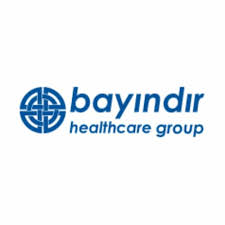
Obesity is a global health concern, and Turkey has become a leading destination for bariatric surgery, offering world-class treatments at affordable prices. Among the most popular procedures are the Mini Gastric Bypass (MGB) and Traditional Gastric Bypass (TGB), two highly effective surgical options for weight loss. But how do you decide which one is right for you?
In this comprehensive guide, we’ll break down the key differences between Mini Gastric Bypass and Traditional Gastric Bypass, evaluate the pros and cons of each procedure, and explore why Turkey is becoming a hub for medical tourism in the field of bariatrics. By the end of this blog, you’ll have a clearer understanding of which surgery might be the best option for your weight loss journey.
Table of Contents
What is Gastric Bypass Surgery?
Gastric bypass surgery is a type of weight loss surgery (bariatric surgery) designed to help people with obesity lose weight by altering the digestive system. It limits the amount of food the stomach can hold and alters the way the body absorbs nutrients. Gastric bypass is known for delivering significant weight loss and helping to improve or even resolve obesity-related conditions such as Type 2 diabetes, high blood pressure, sleep apnea, and heart disease.
There are two primary types of gastric bypass surgeries:
- Mini Gastric Bypass (MGB)
- Traditional Gastric Bypass (Roux-en-Y Gastric Bypass or RYGB)
Both procedures share some similarities but differ in their techniques and results. Understanding the distinctions can help you choose the best option for your personal goals and health needs.
What is Mini Gastric Bypass?
Mini Gastric Bypass, also known as Single-Anastomosis Gastric Bypass, is a simpler and faster version of the Traditional Gastric Bypass. In this procedure, the surgeon creates a long, narrow stomach pouch and connects it to a portion of the small intestine. This limits food intake and reduces the absorption of calories and nutrients.
Here are some key aspects of Mini Gastric Bypass:
- Procedure Time: It typically takes less time to perform, usually about 45 minutes to an hour.
- Simplicity: MGB is considered less complex because it involves a single anastomosis (connection) between the stomach and small intestine, reducing the risk of complications.
- Reversibility: Mini Gastric Bypass is partially reversible, making it an attractive option for patients who might need to reverse the procedure in the future.
- Recovery Time: The recovery period is generally faster compared to Traditional Gastric Bypass, allowing patients to return to normal activities more quickly.
What is Traditional Gastric Bypass?
Traditional Gastric Bypass, or Roux-en-Y Gastric Bypass (RYGB), is considered the gold standard in bariatric surgery. It is a more complex procedure that involves creating a small stomach pouch and bypassing a larger portion of the small intestine than the Mini Gastric Bypass. The rerouted digestive system limits the amount of food you can eat and reduces nutrient absorption, leading to significant weight loss.
Key aspects of Traditional Gastric Bypass:
- Procedure Time: The surgery typically takes longer, around 2 to 3 hours.
- Complexity: RYGB involves two connections (anastomoses)—one between the stomach and small intestine and another between two sections of the small intestine, making it a more intricate procedure.
- Reversibility: It is generally more difficult to reverse than Mini Gastric Bypass.
- Recovery Time: Recovery from Traditional Gastric Bypass surgery may take longer due to the complexity of the procedure.
Mini Gastric Bypass vs. Traditional Gastric Bypass: Key Differences
Let’s dive deeper into the main differences between Mini Gastric Bypass and Traditional Gastric Bypass.
| Aspect | Mini Gastric Bypass | Traditional Gastric Bypass |
|---|---|---|
| Surgical Technique | Single anastomosis: Creates a long, narrow pouch connected to a loop of the small intestine, bypassing 2-7 feet of intestines. | Double anastomosis: Creates a smaller stomach pouch and reroutes the small intestine into two sections, bypassing a larger portion of the intestine. |
| Effectiveness | Typically 60-70% of excess body weight lost within the first year. | Typically 60-80% of excess body weight lost within the first year. Greater malabsorption may lead to slightly higher weight loss. |
| Risks and Complications | Lower risk of leakage but potential for bile reflux due to single connection. | Slightly higher risk of complications like infection, leakage, and nutritional deficiencies, but better prevention of bile reflux due to two connections. |
| Reversibility | Easier to reverse due to less invasiveness and only one connection. | More challenging to reverse due to the complexity of two connections; reversal is rarely needed. |
| Recovery Time | Faster recovery, often returning to normal activities within a few weeks. | Longer recovery time, typically around 6 to 8 weeks before returning to normal activities. |
Top Clinics for Gastric Bypass Surgery in Turkey
Turkey has become a leading destination for bariatric surgery due to its high-quality healthcare services at affordable prices. Many clinics and hospitals offer advanced procedures like Mini Gastric Bypass and Traditional Gastric Bypass, with state-of-the-art technology and highly skilled surgeons. Here’s a look at some of the top clinics for gastric bypass surgery in Turkey
Group Florence Nightingale Hospitals, Istanbul
Florence Nightingale Hospitals are well-known for their world-class medical services, advanced technology, and highly experienced surgeons. This group is renowned for offering comprehensive care in bariatric surgeries, including gastric sleeve surgery. Patients from all over the world come to Florence Nightingale Hospitals due to their high success rates, personalized treatment plans, and modern facilities.

Bayindir Healthcare Group, Ankara
The Bayindir Healthcare Group in Ankara is another leading facility offering gastric sleeve surgery. Known for its high standards of care, Bayindir is staffed with top-notch bariatric surgeons and medical professionals who ensure patient safety and successful outcomes. The group provides a wide range of services, including pre- and post-operative care and nutritional counseling, which are essential for long-term weight loss success.

Private Koru Ankara Hospital, Ankara
Private Koru Ankara Hospital is a prestigious medical center known for its excellence in bariatric surgery, including gastric sleeve procedures. With a highly qualified team of bariatric surgeons, advanced medical equipment, and patient-centered services, Koru Ankara Hospital provides a top-tier experience for medical tourists seeking affordable and successful weight loss surgery in Turkey.

Private Olimpos Hospital, Antalya
Located in the picturesque city of Antalya, Private Olimpos Hospital combines advanced medical care with the convenience of a beautiful recovery destination. The hospital offers affordable gastric sleeve surgery packages and is equipped with modern facilities and a team of experienced bariatric surgeons. Patients can also enjoy the scenic beauty of Antalya as they recover from their surgery.

Cost Differences Between Mini and Traditional Gastric Bypass in Turkey
One of the most significant advantages of opting for bariatric surgery in Turkey is the cost. On average, patients can save up to 60-70% compared to prices in countries like the United States, the UK, or Europe. However, the cost of Mini Gastric Bypass and Traditional Gastric Bypass can vary based on the complexity of the surgery, the clinic’s reputation, and the location.
Here’s a closer look at the cost differences between the two procedures:
Here’s the cost comparison in table form:
| Procedure | Cost Range | Description |
|---|---|---|
| Mini Gastric Bypass | €4,000 to €7,000 | Generally less expensive due to quicker procedure and fewer steps. |
| Traditional Gastric Bypass | €5,000 to €8,500 | Slightly more expensive due to complexity and longer operating time involving two anastomoses. |
Key Factors Influencing the Cost:
- Type of Procedure: Mini Gastric Bypass is usually less expensive because of its simplified surgical technique and reduced operating time.
- Surgeon’s Expertise: More experienced surgeons may charge higher fees due to their expertise, but this often correlates with higher success rates and fewer complications.
- Clinic or Hospital Reputation: Internationally accredited hospitals like Group Florence Nightingale tend to have higher costs due to the level of care and facilities they provide.
- Location: Hospitals in larger cities like Istanbul may have higher costs compared to clinics in cities like Antalya or Ankara, which tend to be more affordable for medical tourists.
Which Procedure is Best for You?
Choosing between Mini Gastric Bypass and Traditional Gastric Bypass depends on several factors, including your health, weight loss goals, and personal preferences. Here are some considerations that may help you decide:
Mini Gastric Bypass May Be Ideal If:
- You prefer a simpler, less invasive procedure with a quicker recovery time.
- You’re looking for a surgery that is easier to reverse if necessary.
- You want to avoid some of the risks associated with more complex surgeries, such as the potential for additional connections in the digestive system.
Traditional Gastric Bypass May Be Ideal If:
- You’re looking for a more comprehensive solution for weight loss, particularly if you have a higher body mass index (BMI).
- You want to maximize your weight loss potential with a more extensive alteration of your digestive system.
- You have concerns about bile reflux and want a procedure that minimizes this risk.
FAQS
How long does it take to recover from gastric bypass surgery in Turkey?
Recovery times can vary, but most patients can return to light activities within 2-3 weeks after surgery. Full recovery, including resuming exercise and normal routines, generally takes 4-6 weeks.
Is gastric bypass surgery in Turkey safe?
Yes, gastric bypass surgery in Turkey is considered safe when performed by experienced surgeons in accredited hospitals. Turkey is known for its high-quality healthcare standards and internationally certified medical facilities.
How much weight can I expect to lose after gastric bypass surgery?
On average, patients can lose 60-80% of their excess weight within 12-18 months after surgery. However, results vary based on individual factors, including adherence to post-surgery diet and exercise recommendations.
Are there any specific dietary requirements after gastric bypass surgery?
Yes, after gastric bypass surgery, patients must follow a strict diet that usually begins with liquids, moves to pureed foods, and eventually transitions to solid foods. The diet is designed to support healing and help maintain long-term weight loss.
Can international patients undergo gastric bypass surgery in Turkey?
Absolutely. Turkey is a popular destination for medical tourism, and many hospitals cater to international patients. They offer packages that include airport transfers, accommodation, and translation services.
What is the difference between gastric sleeve and gastric bypass?
Gastric sleeve surgery involves removing a portion of the stomach to reduce its size, while gastric bypass involves rerouting part of the digestive system. Both surgeries lead to weight loss, but gastric bypass often results in greater long-term weight loss and can also address certain obesity-related conditions like Type 2 diabetes.
How do I qualify for gastric bypass surgery in Turkey?
To qualify for gastric bypass surgery, you typically need to have a BMI of 35 or higher, or a BMI of 30 with obesity-related health conditions such as diabetes or high blood pressure. An initial consultation with the surgeon is required to assess your suitability for the surgery.
How soon can I travel after gastric bypass surgery?
Most patients can travel within 1-2 weeks after gastric bypass surgery, but it’s essential to consult with your surgeon before making travel plans. Some patients may need a bit more time to fully recover before flying.
Ready to transform your life through gastric bypass surgery in Turkey? Contact us today to book your free consultation and take the first step towards a healthier, happier you!





